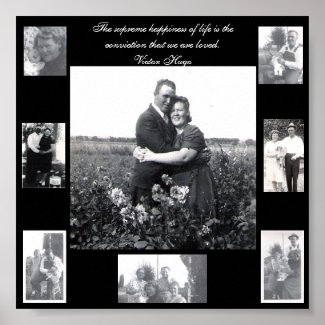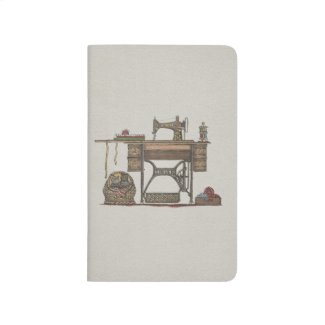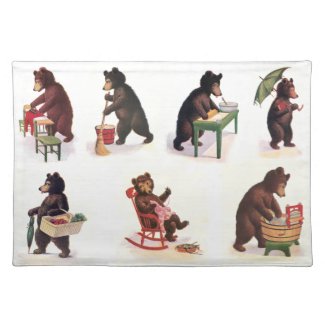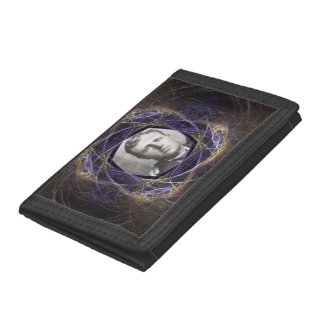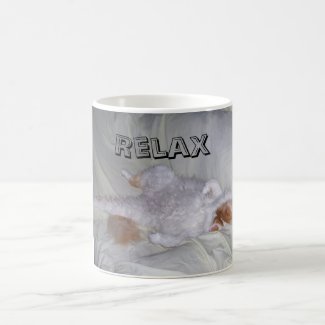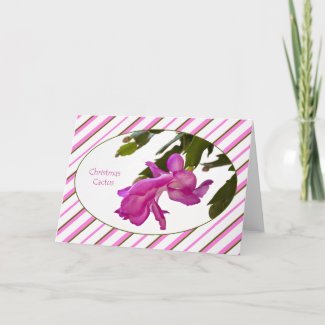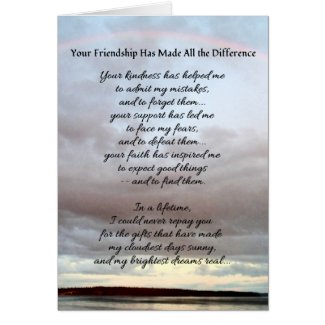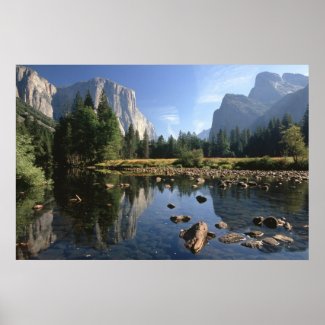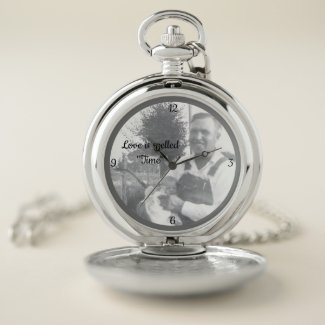There are things about your family that only you know. There are stories your parents told you that no one else will know if you don't share them. Some day your children or grandchildren may want to know those stories. None of us know how long we will live, so now is the time to share those stories. This blog will give you ideas to help you with sharing those stories.
Saturday, December 29, 2018
You're an Angel #Lighttheworld
Have you had an angel in your life? Have you been an angel in someone else's life?
I have had many angels in my life. A couple of weeks ago I had been off work sick. The day I went back to work I came home I found my front door had been decorated for Christmas. Some angel decorated it for me. I had to smile. Decorating was not something I had been worried about doing, but it looked so nice and I felt loved.
A few days ago, I received a card in the mail. I opened it wondering who had sent it since there was no return address. Inside was a pretty Christmas card and inside the card was a gift card for the local grocery store. The card was signed Santa.
Sometimes I know who the angels are that have blessed my life. Sometimes I don't know for sure, so it could be any one of several people that I know or it really could be an angel. I have been blessed by many angels. Whether I know who the angel was or not, it has been a real blessing to me to have these angels in my life.
Record your experiences with angels in your story. Describe your feelings. Tell what the angels did for you. Record your feelings if you were ever an angel to someone else.
Tuesday, October 9, 2018
What Did You Feel As A New Parent, A New Brother or Sister, A New Wife or Husband, A New Uncle or Aunt or A New Grandparent?
What feelings did you have with new relationships in your life?
Relationships change in our lives. Growing up we may have experienced brothers or sisters being added to our family. Do you remember how you felt about a new brother or sister? If you were old enough when they were born, you may remember feeling excited, nervous, or jealous. If you were younger, you may only remember certain incidences where your feelings of happiness or jealousy were expressed. You may remember fighting over toys or over what TV show to watch. You may remember having a good time playing with your brother or sister. Recording your feelings will add a lot to your story.
Later in life when you choose someone to marry, how did you feel? Most people feel very excited about getting married. Some nervousness is also common. Did the nervousness go away after being married for a while or did it escalate and get worse possibly even ending in divorce?
When you had children, how did you feel? Usually, the birth of a child is a very exciting time, but it also can be a time of feeling inadequate and concerned about being up to the task of raising a child. What were the things you enjoyed most in raising your children? What were the most difficult things you encountered?

If you are a grandparent, how did you feel when you found out you were going to be a grandparent? How did you feel when you met your grandchild? What things do you most enjoy doing with your grandchildren? What things are hard to deal with as a grandparent?
Record your feelings about any other relationships. You could write about how you feel about being an aunt or uncle or a cousin. Even recording your feelings about friends will add a lot to your story. Your feelings will bring life to your story and make it more real than just the facts can do. Your feelings will make your story uniquely your own. Take time to record your feelings.
Relationships change in our lives. Growing up we may have experienced brothers or sisters being added to our family. Do you remember how you felt about a new brother or sister? If you were old enough when they were born, you may remember feeling excited, nervous, or jealous. If you were younger, you may only remember certain incidences where your feelings of happiness or jealousy were expressed. You may remember fighting over toys or over what TV show to watch. You may remember having a good time playing with your brother or sister. Recording your feelings will add a lot to your story.
Later in life when you choose someone to marry, how did you feel? Most people feel very excited about getting married. Some nervousness is also common. Did the nervousness go away after being married for a while or did it escalate and get worse possibly even ending in divorce?
When you had children, how did you feel? Usually, the birth of a child is a very exciting time, but it also can be a time of feeling inadequate and concerned about being up to the task of raising a child. What were the things you enjoyed most in raising your children? What were the most difficult things you encountered?

If you are a grandparent, how did you feel when you found out you were going to be a grandparent? How did you feel when you met your grandchild? What things do you most enjoy doing with your grandchildren? What things are hard to deal with as a grandparent?
Record your feelings about any other relationships. You could write about how you feel about being an aunt or uncle or a cousin. Even recording your feelings about friends will add a lot to your story. Your feelings will bring life to your story and make it more real than just the facts can do. Your feelings will make your story uniquely your own. Take time to record your feelings.
Saturday, September 29, 2018
Memories of Grandparents
What kind of things do you remember doing with your grandparents or great-grandparents?
Were you fortunate enough to get to spend time with your grandparents or great-grandparents? You may not have spent much time with your grandparents because they lived a great distance from you. You may not have had much time with them because they passed away before you were very old. Both of my grandfathers died before I was born, so I never even met them. One of my grandmothers passed away when I was about six years old. I only have a few memories of her. My other grandmother lived to be in her nineties. I have many memories of her. I never knew my great-grandparents since they all died before I was born. Three of my children met their great-grandmother, but she was ill and they didn't get to spend much time with her. People are living longer now, so knowing grandparents and great-grandparents is more common now.
Writing some of your memories of your grandparents and great-grandparents if you knew them will preserve their legacy for your children. When you went to your grandparents' house did they give you any treats? My maternal grandmother had plum trees in her yard. She often made plum-filled cookies as a treat. One year my grandmother gave us corn that she had dried herself. It was a surprisingly sweet treat.
How often did you get to visit your grandparents? We usually saw my grandmother every week. We raised chickens and sold the eggs to many people in the city she lived in. We would take a dozen eggs to her each week, and we usually visited for a little while. One winter when our van we used to deliver the eggs with didn't have a working heater, we would plan to stop in at grandma's and warm up midway through our delivery route. Her coal-burning stove felt so warm. I remember warming up too fast and how painful that was.
Did your grandparents have any special talents? My grandmother sewed clothing, made quilts, and braided rugs. I remember one Christmas, my grandmother gave me a bib apron she had sewn. She made me a couple of pincushions which I still have. My mother started a quilt top before she died. My dad and stepmother asked my grandmother to finish the quilt top. Then my stepmother added batting and a backing and quilted the quilt for me. The quilt is so special to me since it was the work of three important women in my life.
Write down the memories of your grandparents and your great-grandparents if you were fortunate enough to know them. Take photos of anything they gave to you or that once belonged to them. Record your feelings about your grandparents. The members of your family who didn't get to know your grandparents will appreciate what you have recorded.
Were you fortunate enough to get to spend time with your grandparents or great-grandparents? You may not have spent much time with your grandparents because they lived a great distance from you. You may not have had much time with them because they passed away before you were very old. Both of my grandfathers died before I was born, so I never even met them. One of my grandmothers passed away when I was about six years old. I only have a few memories of her. My other grandmother lived to be in her nineties. I have many memories of her. I never knew my great-grandparents since they all died before I was born. Three of my children met their great-grandmother, but she was ill and they didn't get to spend much time with her. People are living longer now, so knowing grandparents and great-grandparents is more common now.
Writing some of your memories of your grandparents and great-grandparents if you knew them will preserve their legacy for your children. When you went to your grandparents' house did they give you any treats? My maternal grandmother had plum trees in her yard. She often made plum-filled cookies as a treat. One year my grandmother gave us corn that she had dried herself. It was a surprisingly sweet treat.
How often did you get to visit your grandparents? We usually saw my grandmother every week. We raised chickens and sold the eggs to many people in the city she lived in. We would take a dozen eggs to her each week, and we usually visited for a little while. One winter when our van we used to deliver the eggs with didn't have a working heater, we would plan to stop in at grandma's and warm up midway through our delivery route. Her coal-burning stove felt so warm. I remember warming up too fast and how painful that was.
Did your grandparents have any special talents? My grandmother sewed clothing, made quilts, and braided rugs. I remember one Christmas, my grandmother gave me a bib apron she had sewn. She made me a couple of pincushions which I still have. My mother started a quilt top before she died. My dad and stepmother asked my grandmother to finish the quilt top. Then my stepmother added batting and a backing and quilted the quilt for me. The quilt is so special to me since it was the work of three important women in my life.
Write down the memories of your grandparents and your great-grandparents if you were fortunate enough to know them. Take photos of anything they gave to you or that once belonged to them. Record your feelings about your grandparents. The members of your family who didn't get to know your grandparents will appreciate what you have recorded.
Saturday, September 8, 2018
What Kind of Furniture Did Your Family Have?
What furniture do you remember while you were growing up?
All homes have furniture. Sometimes there isn't a lot of furniture, but there had to be something to sit on, something to do work on and something to sleep on. It could be possible that you only had a mat to sleep and sit on and to do your work on, but most people have more furniture than that. Write about the furniture you had and include pictures if you have them in your story.
The dining room table that I remember growing up was a red Formica top table with silver metal trim. There were matching chairs, but they wore out relatively quickly. My dad gave me the table after I had a home of my own. Eventually, I gave it to my brother. We had many meals around the table and played games around the table and did homework there. It was a family gathering place.
I remember when we got new living room furniture. We got a vinyl sofa bed with two recliners. I still remember a party at our house when a couple of the kids my age jumped onto one of the recliners and broke it. We hadn't had it very long before it was broken. We also had a grandfather clock replica with bookshelves. That was where books for the whole family were kept. We also had a large console television.
In my sister's and my bedroom, we had a double bed to both sleep in. When my sister became ill and it wasn't known yet for sure what caused her illness, I had to sleep on the sofa bed in the living room to protect from me from catching something from my sister. Then our parents purchased a set of bunk beds so that we each had our own bed to sleep in. My sister and I had an old treadle sewing machine table that we used as a dressing table. I remember when my dad was too busy to build a bookshelf, my mother had me help her select some boards and help her build a bookcase for me.oRemembering the furniture that your family had will probably bring up some memories for you of what happened with that furniture. Try writing down all of the furniture you can remember having in your home. Then write down what things you remember happening with that furniture. Did you play games around a certain table? Did you share a bed with a sibling? Did you have a special desk to do your homework at? Did you have a favorite chair that you liked to sit in? Did you or someone in your family build a piece of furniture for your home? Do you remember shopping for furniture? Did you inherit a piece of furniture? Writing about the furniture you had in your home will probably trigger many other memories that you can add to your story.
https://www.zazzle.com/floral_tree_plum_silhouette_family_tree_photos_throw_pillow-256557369930928415
All homes have furniture. Sometimes there isn't a lot of furniture, but there had to be something to sit on, something to do work on and something to sleep on. It could be possible that you only had a mat to sleep and sit on and to do your work on, but most people have more furniture than that. Write about the furniture you had and include pictures if you have them in your story.
The dining room table that I remember growing up was a red Formica top table with silver metal trim. There were matching chairs, but they wore out relatively quickly. My dad gave me the table after I had a home of my own. Eventually, I gave it to my brother. We had many meals around the table and played games around the table and did homework there. It was a family gathering place.
I remember when we got new living room furniture. We got a vinyl sofa bed with two recliners. I still remember a party at our house when a couple of the kids my age jumped onto one of the recliners and broke it. We hadn't had it very long before it was broken. We also had a grandfather clock replica with bookshelves. That was where books for the whole family were kept. We also had a large console television.
In my sister's and my bedroom, we had a double bed to both sleep in. When my sister became ill and it wasn't known yet for sure what caused her illness, I had to sleep on the sofa bed in the living room to protect from me from catching something from my sister. Then our parents purchased a set of bunk beds so that we each had our own bed to sleep in. My sister and I had an old treadle sewing machine table that we used as a dressing table. I remember when my dad was too busy to build a bookshelf, my mother had me help her select some boards and help her build a bookcase for me.oRemembering the furniture that your family had will probably bring up some memories for you of what happened with that furniture. Try writing down all of the furniture you can remember having in your home. Then write down what things you remember happening with that furniture. Did you play games around a certain table? Did you share a bed with a sibling? Did you have a special desk to do your homework at? Did you have a favorite chair that you liked to sit in? Did you or someone in your family build a piece of furniture for your home? Do you remember shopping for furniture? Did you inherit a piece of furniture? Writing about the furniture you had in your home will probably trigger many other memories that you can add to your story.
Saturday, September 1, 2018
What Games Did Your Family Play?
What kind of games did your family play? What kind of games do you remember playing with friends?
Playing games was a common occurrence in families before television, computers, video games, and other electronic devices came into being. Families still may play games together, but a lot of other things may take up our free time now.
What kind of games do you remember playing? Did you play active games like Hide and Seek or Tag. Did you play games like baseball, football, volleyball or other sports? Did you play board or card games? Was your family very competitive or was it more relaxed and just to have a fun time? What games were you best at? Did you do well in physically active games or did you do better in games that challenged your mind? Did you prefer games of chance like spinning a wheel or rolling dice? Did you play with your family or did you play with your friends?
I mostly enjoyed board games. My mother like to play board games with us and I played with my brother and sister. Some games taught math skills. Some games taught spelling skills. Some games taught strategy. We did play to win, but it wasn't a cut-throat competition. I like games where I learn something from the game. Games of chance are boring to me. Recently our church had a Bingo night. I found myself getting bored because it was just covering up the numbers that were called out. At another gathering we played a version of Bingo that involved words from scriptures. That was so much more fun as we would see who could recite the scripture with that word in it.
Recently I found games that help teach family history. If you have an account on familysearch.org you can find these games by clicking these links and signing into your account. The games will access your family tree information and create a customized game for your family. If you don't have an account at familysearch.org you can create one for free and enter your family information and then you can create a customized game for your family. These games are a fun way to get to know your family.
Wheel of Family Fortune
Geneopardy
I found this Bingo Game and thought what a great idea it would be to get to know family members at a family reunion.
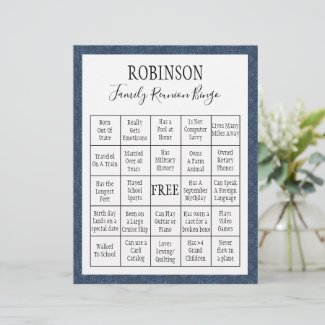
Family Reunion Bingo Game 1
by CountryPatch
Write about the games you and your family played when you were young and what games you play now to add fun to your story.
Photo by rawpixel on Unsplash
Playing games was a common occurrence in families before television, computers, video games, and other electronic devices came into being. Families still may play games together, but a lot of other things may take up our free time now.
What kind of games do you remember playing? Did you play active games like Hide and Seek or Tag. Did you play games like baseball, football, volleyball or other sports? Did you play board or card games? Was your family very competitive or was it more relaxed and just to have a fun time? What games were you best at? Did you do well in physically active games or did you do better in games that challenged your mind? Did you prefer games of chance like spinning a wheel or rolling dice? Did you play with your family or did you play with your friends?
I mostly enjoyed board games. My mother like to play board games with us and I played with my brother and sister. Some games taught math skills. Some games taught spelling skills. Some games taught strategy. We did play to win, but it wasn't a cut-throat competition. I like games where I learn something from the game. Games of chance are boring to me. Recently our church had a Bingo night. I found myself getting bored because it was just covering up the numbers that were called out. At another gathering we played a version of Bingo that involved words from scriptures. That was so much more fun as we would see who could recite the scripture with that word in it.
Recently I found games that help teach family history. If you have an account on familysearch.org you can find these games by clicking these links and signing into your account. The games will access your family tree information and create a customized game for your family. If you don't have an account at familysearch.org you can create one for free and enter your family information and then you can create a customized game for your family. These games are a fun way to get to know your family.
Wheel of Family Fortune
Geneopardy
I found this Bingo Game and thought what a great idea it would be to get to know family members at a family reunion.

Family Reunion Bingo Game 1
by CountryPatch
Write about the games you and your family played when you were young and what games you play now to add fun to your story.
Photo by rawpixel on Unsplash
Saturday, August 11, 2018
What Chores Did You Have To Do?
What Kind of Chores Were You Assigned To Do?
When you were young what did your parents expect you to do? Did you have to have all your toys picked up before going to bed? Did you have to help with the laundry, like gathering up your dirty clothes and folding and putting away your clean clothes? Did you have to sweep and mop floors or run a vacuum over the carpets? Did you have to wash dishes? Did you help cook meals? Did you have to bring in wood or coal to heat the house? If you grew up on a farm, did you help take care of the animals like milking the cow or gathering eggs?
Chores have changed over time. Today's chores might be picking up your toys, loading the dishwasher, feeding the dog or cat, vacuuming the floors, and helping cook some meals.
The chores our grandparents did may have been hanging out clothes to dry, beating a rug, picking fruit from a tree, harvesting vegetables from the garden and building a fire to heat the house.
Growing up Saturdays were big days with a lot of chores to do at home. After getting up I was asked to take the dirty sheets off from my bed so they could be washed. Then I was to gather all my dirty clothes. After the clothes were washed, I was expected to hang them on the clothesline outside. We had no carpets in our house, so we swept and mopped every floor in the house. We cleaned the bathrooms. We dusted and polished all the wood furniture. At night while watching TV we folded clothes and ironed the wrinkled clothes. Other chores were feeding the animals; gathering eggs; cleaning, grading, and casing eggs; delivering eggs; and filling the furnace hopper with coal to heat the house.
Sometimes the everyday chores don't seem that significant, but they are very much a part of our lives. Writing about the chores we had to do can add a lot to our stories. Write about the common everyday things you did growing up. The things you did may not be so common anymore.
When you were young what did your parents expect you to do? Did you have to have all your toys picked up before going to bed? Did you have to help with the laundry, like gathering up your dirty clothes and folding and putting away your clean clothes? Did you have to sweep and mop floors or run a vacuum over the carpets? Did you have to wash dishes? Did you help cook meals? Did you have to bring in wood or coal to heat the house? If you grew up on a farm, did you help take care of the animals like milking the cow or gathering eggs?
Chores have changed over time. Today's chores might be picking up your toys, loading the dishwasher, feeding the dog or cat, vacuuming the floors, and helping cook some meals.
The chores our grandparents did may have been hanging out clothes to dry, beating a rug, picking fruit from a tree, harvesting vegetables from the garden and building a fire to heat the house.
Growing up Saturdays were big days with a lot of chores to do at home. After getting up I was asked to take the dirty sheets off from my bed so they could be washed. Then I was to gather all my dirty clothes. After the clothes were washed, I was expected to hang them on the clothesline outside. We had no carpets in our house, so we swept and mopped every floor in the house. We cleaned the bathrooms. We dusted and polished all the wood furniture. At night while watching TV we folded clothes and ironed the wrinkled clothes. Other chores were feeding the animals; gathering eggs; cleaning, grading, and casing eggs; delivering eggs; and filling the furnace hopper with coal to heat the house.
Sometimes the everyday chores don't seem that significant, but they are very much a part of our lives. Writing about the chores we had to do can add a lot to our stories. Write about the common everyday things you did growing up. The things you did may not be so common anymore.
Monday, August 6, 2018
How Can You Remember Your Family Stories?
There is much to remember from your family stories. Writing them down will preserve those memories, yet it does take time to reread those stories. That is why displaying photos of those memories can keep those stories fresh in your mind. Creating a photo gallery on one of your walls is one way to keep your memories in front of you. Placing photos on common objects you use every day is another way. You can preserve photos on pillows, blankets, mugs, mousepads, hats, t-shirts, magnets, keychains, tote bags, and other items you use frequently.
There are print-on-demand sites that allow you to create your own items customizing them with your own photos. Following are a few examples from Zazzle.com.
When you need to buy something new consider purchasing an item you can customize with one of your family photos. It is fairly simple to customize an item. If you choose to check out items on Zazzle.com and you have trouble with customizing your item, please feel free to contact me through the comments below. You can also contact the designer of a certain item at Zazzle.com to get help. With a few custom items, you can keep your family memories constantly before you. Start thinking of the photos you have that trigger wonderful memories for you. Then find an item to customize with one of those photos. Over time you could have a house full of memories.
There are print-on-demand sites that allow you to create your own items customizing them with your own photos. Following are a few examples from Zazzle.com.
When you need to buy something new consider purchasing an item you can customize with one of your family photos. It is fairly simple to customize an item. If you choose to check out items on Zazzle.com and you have trouble with customizing your item, please feel free to contact me through the comments below. You can also contact the designer of a certain item at Zazzle.com to get help. With a few custom items, you can keep your family memories constantly before you. Start thinking of the photos you have that trigger wonderful memories for you. Then find an item to customize with one of those photos. Over time you could have a house full of memories.
Saturday, July 14, 2018
Plants are a Part of Our Lives
What kind of plants were grown in your home?
Did your family grow houseplants? Did you grow them to add beauty to your home? Did you grow them to absorb toxins in the home? Did you grow them to eat? Did they grow really well, or did they struggle to live, or did they even die?
My mother grew geraniums in our kitchen window. I remember how pretty they were when they bloomed with red flowers. They had a smell that when I smell it even now reminds me of my home when I was growing up.
Over the years I started growing houseplants that would clean the air like spider plants, aloe vera plants, and others. I tried growing dwarf orange and lemon trees which didn't do very well. One of my daughters planted a seed from an orange and it grew pretty big, but not to the point of getting any fruit. I tried planting a pineapple top, and although it grew big, it never produced a pineapple. I was given a Christmas Cactus plant which is fun to see if it will bloom for Christmas.
Write about the houseplants you may remember from your childhood as well as the ones you have grown yourself. If you remember your grandparents growing houseplants write about those too. Take photos so you can remember those plants. Write about what you learned about growing plants. Write about your successes and your failures. Houseplants add to the atmosphere in a home and they can trigger memories. Those memories will add to your story.
Tuesday, June 12, 2018
A Best Friend
Have you had a best friend in your life?
At times in our lives we have a friend come along who we enjoy spending time with and who we can count on for help. Recording who those special friends are can contribute much to our stories.
As a child I didn't feel like I had a best friend except when I was in second grade. There was a girl in my class that I enjoyed playing with at recess. I didn't see outside of school, but at school I felt like she was my best friend. By the next year, she had moved and I haven't seen her since.
As an adult, I couldn't pick out just one best friend. I have several friends that I enjoy talking to or doing things with. I have one friend who has told me I can call her any time day or night if I need something. I have other friends who have offered different kinds of help. Friends do make our lives much happier. Recording some of the things you have done with friends can add to your story. Don't forget your family may be some of your very best friends. Record the things you've done with your family that helps to make them your best friends.
At times in our lives we have a friend come along who we enjoy spending time with and who we can count on for help. Recording who those special friends are can contribute much to our stories.
As a child I didn't feel like I had a best friend except when I was in second grade. There was a girl in my class that I enjoyed playing with at recess. I didn't see outside of school, but at school I felt like she was my best friend. By the next year, she had moved and I haven't seen her since.
As an adult, I couldn't pick out just one best friend. I have several friends that I enjoy talking to or doing things with. I have one friend who has told me I can call her any time day or night if I need something. I have other friends who have offered different kinds of help. Friends do make our lives much happier. Recording some of the things you have done with friends can add to your story. Don't forget your family may be some of your very best friends. Record the things you've done with your family that helps to make them your best friends.
Saturday, May 12, 2018
Places of Work
Have you worked someplace special?
If you have ever worked in a memorable or historical place, have you recorded things about where you work and the kind of work you did? Have you had an ancestor that has worked in someplace special? What kind of work did they do? Even ordinary workplaces can have interesting stories that could be recorded as part of your life history or your family member's history.
I had the privilege of working in the museum in our small town. When I was first hired, I was asked to clean all of the items in the museum and their display cases. I was asked to label each item and record identifying information about each item and enter it into a database. I would paint a small patch of an item with white-out liquid and then after it was dry write a number on it. Then I would measure each item and record the measurements, what was written on the item, what it was used for, and what we knew of its history such as the name of the donor. Then I would use clear nail polish to seal the number so that it would hopefully remain on the item for years. If the item was made of cloth or other materials that couldn't be painted on, I would sew on a small fabric label and write the number on it. This was to make it easier in the future to find information about the artifacts in the museum.
I learned a lot about the surrounding area working at the museum. I did not grow up in that area so I didn't know that much of its history. I did find it fascinating.
I have wondered about what my ancestors felt about moving to a new area that they knew nothing about. I think it would have been interesting if they would have recorded more about the area they lived in.
When you write your own story, include information about where you worked and what kind of work you did. Write about the community you lived in and what it was like. All of this very much affects your life story and the way you look at life. Record what kind of work your ancestors did as well and what the communities they lived in were like.
If you have ever worked in a memorable or historical place, have you recorded things about where you work and the kind of work you did? Have you had an ancestor that has worked in someplace special? What kind of work did they do? Even ordinary workplaces can have interesting stories that could be recorded as part of your life history or your family member's history.
I had the privilege of working in the museum in our small town. When I was first hired, I was asked to clean all of the items in the museum and their display cases. I was asked to label each item and record identifying information about each item and enter it into a database. I would paint a small patch of an item with white-out liquid and then after it was dry write a number on it. Then I would measure each item and record the measurements, what was written on the item, what it was used for, and what we knew of its history such as the name of the donor. Then I would use clear nail polish to seal the number so that it would hopefully remain on the item for years. If the item was made of cloth or other materials that couldn't be painted on, I would sew on a small fabric label and write the number on it. This was to make it easier in the future to find information about the artifacts in the museum.
I learned a lot about the surrounding area working at the museum. I did not grow up in that area so I didn't know that much of its history. I did find it fascinating.
I have wondered about what my ancestors felt about moving to a new area that they knew nothing about. I think it would have been interesting if they would have recorded more about the area they lived in.
When you write your own story, include information about where you worked and what kind of work you did. Write about the community you lived in and what it was like. All of this very much affects your life story and the way you look at life. Record what kind of work your ancestors did as well and what the communities they lived in were like.
Saturday, April 28, 2018
Memories of Places You have Traveled
What places have you or your family traveled? Are there any special memories from visiting certain places? What do you remember?
A lot of people take a yearly vacation to some place special. You may have pictures or even videos of the places you have visited. Pictures say a lot about your trips, but there are stories to go along with the pictures. Why did you go there? Was it as nice as you thought it would be? Who went with you? Did you spend a few hours or a few days there? Every trip has a story behind it. Write about your trips to add to your story.
I grew up on a farm. We didn't travel very much. I don't think we ever went on a trip more than two or three hours from home. Usually we only went for the day, since my dad had to get someone to take care of the animals while we were gone. Most of our trips were to Salt Lake City since it was the closest big city. My parents may have needed to do some shopping there, but they usually planned something fun for us to do. We went to the zoo, the amusement park, the state capitol, Pioneer Village, and frequently Temple Square.
My husband planned trips for our family to see some of the beautiful places around us. He took us to Yellowstone on a trip up to see his parents. He took us to see fireworks on the Fourth of July of the lake at Coeur d'Alene, Idaho. He took us to see the Giant Redwoods and to see Yosemite National Park.
We didn't take photos of many of the places we went. Remembering cameras and film and paying for developing the film was often not done when we traveled. Today with digital cameras and smartphone cameras you usually have a camera with you. The cost of developing film is gone. You just have to have memory to store the photos. You can choose to print the photos or you can keep them in a digital format and view them whenever you choose. Many photos of places are available online now. Seeing those photos can bring back memories. You can purchase photos or you may even find some photos available for your use without charge. Even if you don't have photos of you or your family at a certain place, you still have the memories that you can write down to preserve your story.
Take time to write about the places you have gone and your memories of those places and add to your story.
A lot of people take a yearly vacation to some place special. You may have pictures or even videos of the places you have visited. Pictures say a lot about your trips, but there are stories to go along with the pictures. Why did you go there? Was it as nice as you thought it would be? Who went with you? Did you spend a few hours or a few days there? Every trip has a story behind it. Write about your trips to add to your story.
I grew up on a farm. We didn't travel very much. I don't think we ever went on a trip more than two or three hours from home. Usually we only went for the day, since my dad had to get someone to take care of the animals while we were gone. Most of our trips were to Salt Lake City since it was the closest big city. My parents may have needed to do some shopping there, but they usually planned something fun for us to do. We went to the zoo, the amusement park, the state capitol, Pioneer Village, and frequently Temple Square.
My husband planned trips for our family to see some of the beautiful places around us. He took us to Yellowstone on a trip up to see his parents. He took us to see fireworks on the Fourth of July of the lake at Coeur d'Alene, Idaho. He took us to see the Giant Redwoods and to see Yosemite National Park.
We didn't take photos of many of the places we went. Remembering cameras and film and paying for developing the film was often not done when we traveled. Today with digital cameras and smartphone cameras you usually have a camera with you. The cost of developing film is gone. You just have to have memory to store the photos. You can choose to print the photos or you can keep them in a digital format and view them whenever you choose. Many photos of places are available online now. Seeing those photos can bring back memories. You can purchase photos or you may even find some photos available for your use without charge. Even if you don't have photos of you or your family at a certain place, you still have the memories that you can write down to preserve your story.
Take time to write about the places you have gone and your memories of those places and add to your story.
Saturday, April 14, 2018
Hair Styles
How did your ancestor wear their hair?
Hair styles change throughout the years. How your ancestor wore their hair probably was affected by the hair styles at that time. Both of my grandmothers wore their hair in a bun for their wedding pictures. My maternal grandmother continued to wear her hair long and put it up in a bun throughout her life. When I attended college, I was able to visit with her on my lunch break. Some days she asked me to comb her hair and put it up in a bun since she suffered from arthritis in her hands which made it difficult for her to do. My paternal grandmother had shorter hair in the photos of her later years of life. The choice to have shorter hair may have had to do with the fact she had nine children.
Men's hair length and style plus whether they had mustaches or beards are also affected by the hairstyles of the time. My paternal grandfather had a short hair and no facial hair in the photos I had of him. Recently I found a photo of him posted online and in a book with a mustache. At first I didn't think it could be him when I found it online. Then when I found it in a book also, I realized it was him even though he looked different to me.
Of course the color of hair can be important in identifying someone. Black and white photos can make it difficult to tell the color of hair. You can tell the difference between blonde and black with some shades of brown in-between, but you can't tell red hair from brown or white hair from blonde. When recording information about a black and white photo, it would be good to indicate the color of hair if you know what color it was. You may also want to record whether hair coloring was used to change the natural color of the hair.
You may want to record how a certain hair style was obtained. Did it require sleeping on curlers? Was it braided? Was it teased to create a bouffant or beehive hair style? Was the hair naturally curly or was it permed?
Part of your own story could include how you wore your hair and why you wore it that way. Did you have long hair because you wanted it, or did your mother or father not want your hair to be cut? Record why you decided to change your hair style. Did you try to wear your hair differently or were you content to wear your hair the same way each day? Did it take a long time to fix your hair or did you just comb it and go?
Add more to your ancestor's story or to your own story with a description of the hair.
Hair styles change throughout the years. How your ancestor wore their hair probably was affected by the hair styles at that time. Both of my grandmothers wore their hair in a bun for their wedding pictures. My maternal grandmother continued to wear her hair long and put it up in a bun throughout her life. When I attended college, I was able to visit with her on my lunch break. Some days she asked me to comb her hair and put it up in a bun since she suffered from arthritis in her hands which made it difficult for her to do. My paternal grandmother had shorter hair in the photos of her later years of life. The choice to have shorter hair may have had to do with the fact she had nine children.
Men's hair length and style plus whether they had mustaches or beards are also affected by the hairstyles of the time. My paternal grandfather had a short hair and no facial hair in the photos I had of him. Recently I found a photo of him posted online and in a book with a mustache. At first I didn't think it could be him when I found it online. Then when I found it in a book also, I realized it was him even though he looked different to me.
Of course the color of hair can be important in identifying someone. Black and white photos can make it difficult to tell the color of hair. You can tell the difference between blonde and black with some shades of brown in-between, but you can't tell red hair from brown or white hair from blonde. When recording information about a black and white photo, it would be good to indicate the color of hair if you know what color it was. You may also want to record whether hair coloring was used to change the natural color of the hair.
You may want to record how a certain hair style was obtained. Did it require sleeping on curlers? Was it braided? Was it teased to create a bouffant or beehive hair style? Was the hair naturally curly or was it permed?
Part of your own story could include how you wore your hair and why you wore it that way. Did you have long hair because you wanted it, or did your mother or father not want your hair to be cut? Record why you decided to change your hair style. Did you try to wear your hair differently or were you content to wear your hair the same way each day? Did it take a long time to fix your hair or did you just comb it and go?
Add more to your ancestor's story or to your own story with a description of the hair.
Saturday, March 17, 2018
Night Owls and Early Birds
What is your favorite time of day?
Do you wake up early so you can get a lot done early in the morning? Do you prefer to stay up late? Or is the middle of the day your best time to get work done? Writing about what time of day you prefer to work can tell a lot about you. The time you need to be at a job probably determines whether you get up early or not. Sometimes you may stay up late trying to get a little more done. Your daily schedule may seem pretty boring, but in the future, you may really appreciate knowing what you did at what time of day.
You might have some information on some of your ancestors' work schedule. If they ran a business, you may be able to find their store hours. Did they work graveyard shift or swing shift? Did they work on weekends or holidays? How did their work schedule affect their family time? I knew a mother who worked graveyard, but she would come home and get her children ready for school before she would get some sleep. Since I grew up on a farm, my parents tended to get up early. Chores on the farm need to be done even on holidays and weekends. Saturdays were a busy day when many things were done especially when we as children were home from school. Sundays were much quieter though feeding the animals, milking the cows, and gathering eggs needed to be done. There are many jobs that require people to work around the clock like policemen, firemen, nurses, doctors, and caregivers.
Do you wake up early so you can get a lot done early in the morning? Do you prefer to stay up late? Or is the middle of the day your best time to get work done? Writing about what time of day you prefer to work can tell a lot about you. The time you need to be at a job probably determines whether you get up early or not. Sometimes you may stay up late trying to get a little more done. Your daily schedule may seem pretty boring, but in the future, you may really appreciate knowing what you did at what time of day.
You might have some information on some of your ancestors' work schedule. If they ran a business, you may be able to find their store hours. Did they work graveyard shift or swing shift? Did they work on weekends or holidays? How did their work schedule affect their family time? I knew a mother who worked graveyard, but she would come home and get her children ready for school before she would get some sleep. Since I grew up on a farm, my parents tended to get up early. Chores on the farm need to be done even on holidays and weekends. Saturdays were a busy day when many things were done especially when we as children were home from school. Sundays were much quieter though feeding the animals, milking the cows, and gathering eggs needed to be done. There are many jobs that require people to work around the clock like policemen, firemen, nurses, doctors, and caregivers.
Writing about what your ancestor's day looked like could give insights into their lives. Record what time they went to work and when they got home. Did they work for themselves or were they on call? How did they handle doing their work and caring for their family? Work is a major part of our lives. Sharing what your ancestors did in their work-life will add significantly to their story.
Subscribe to:
Comments (Atom)

